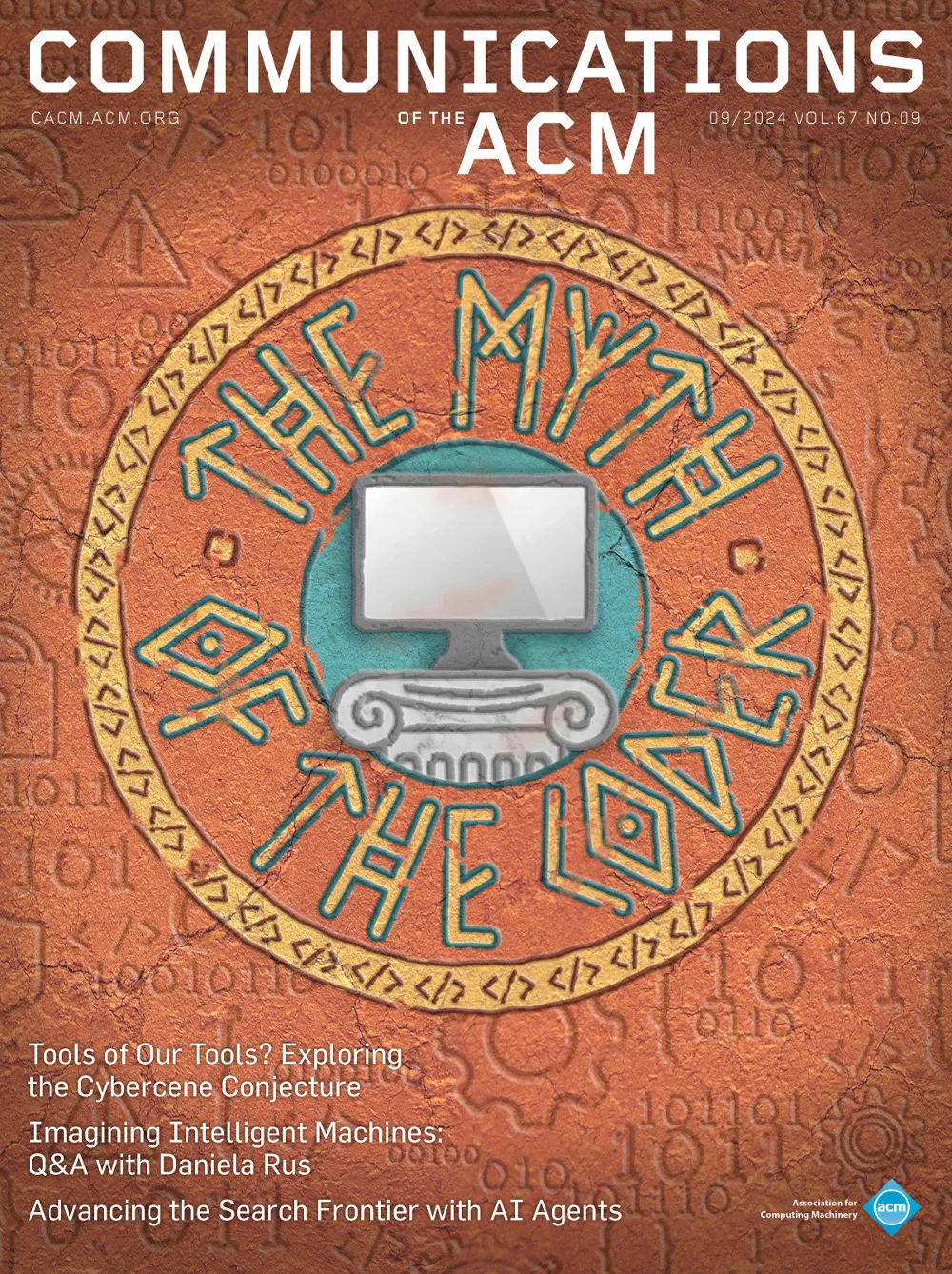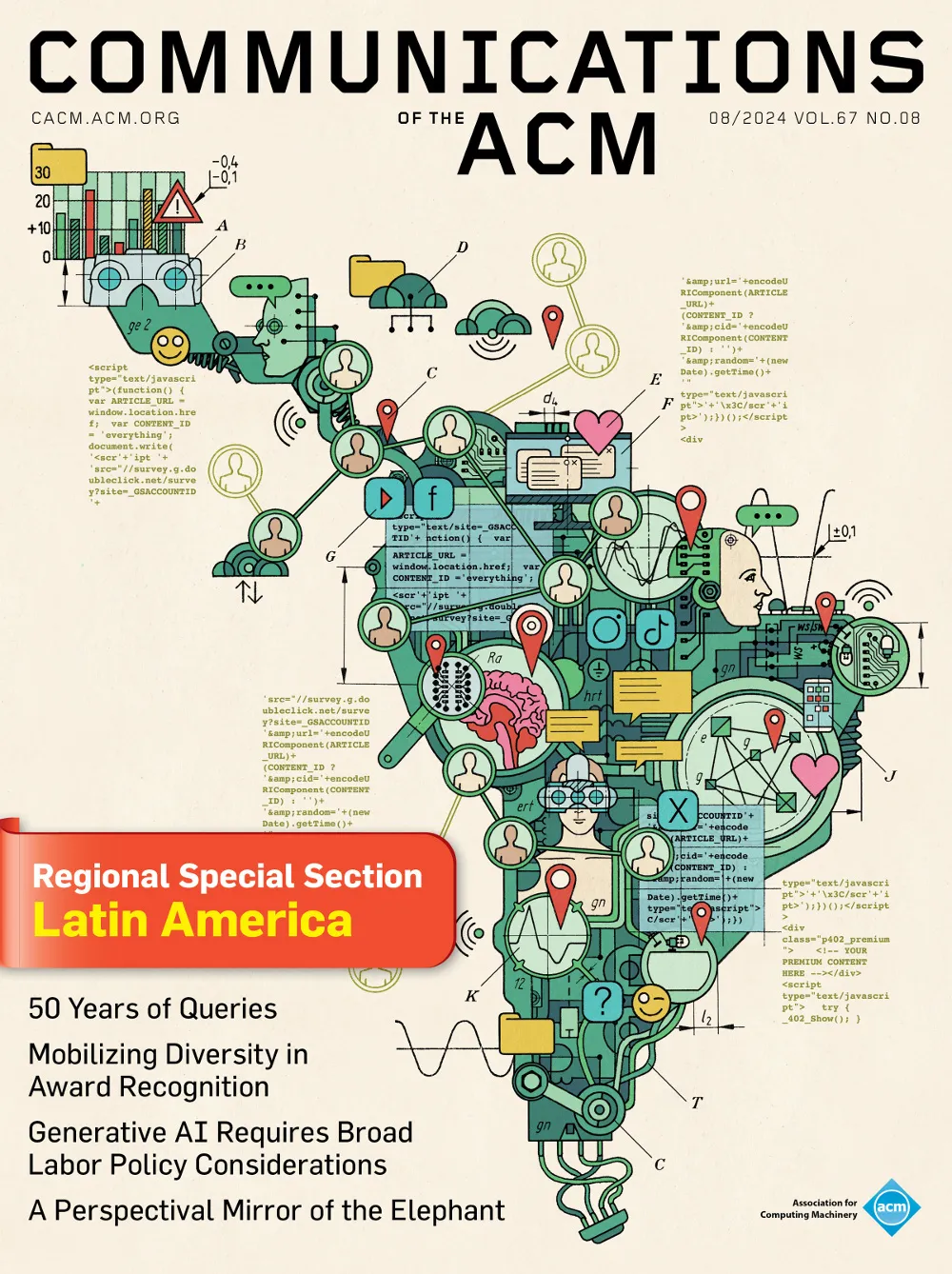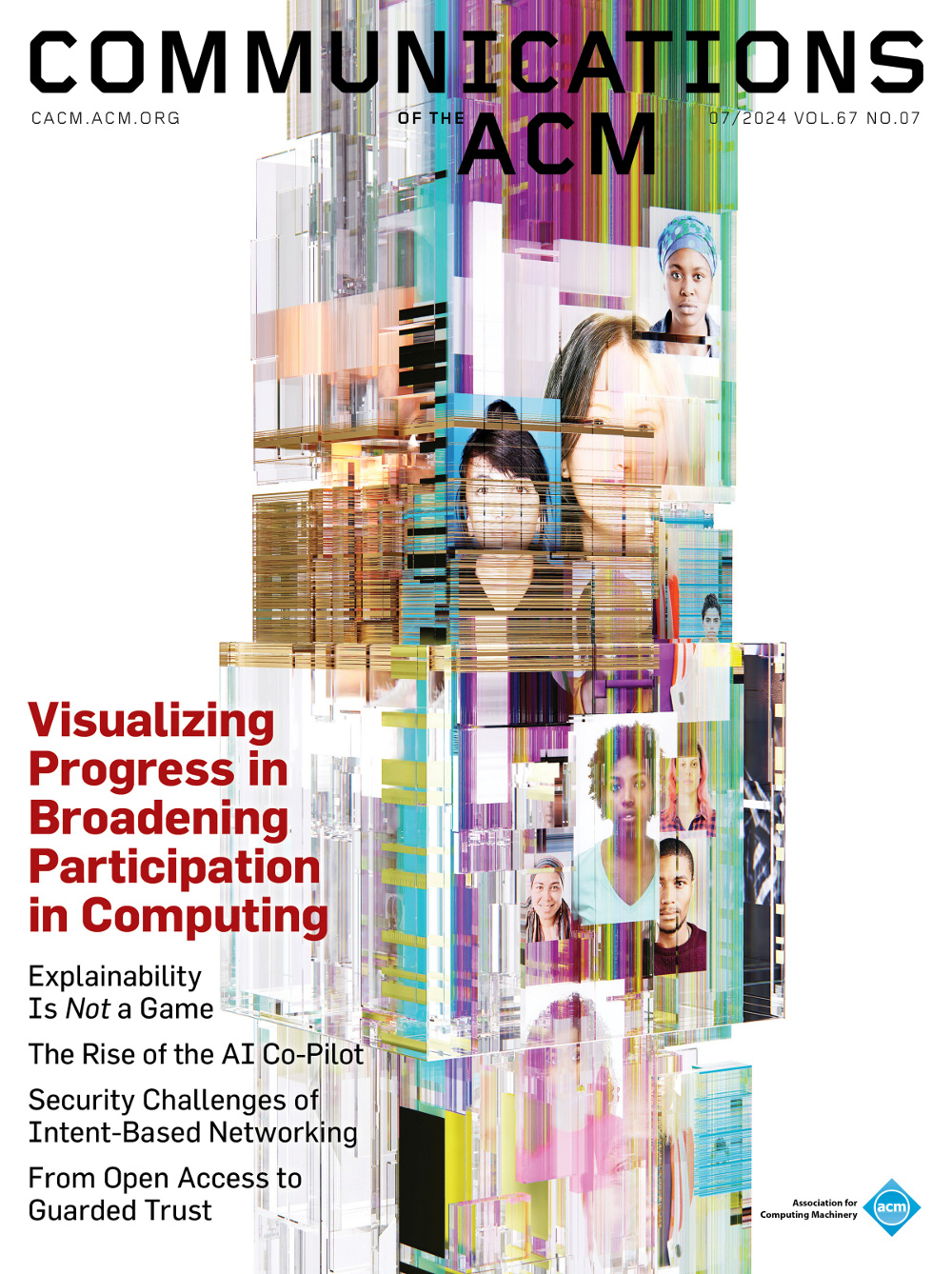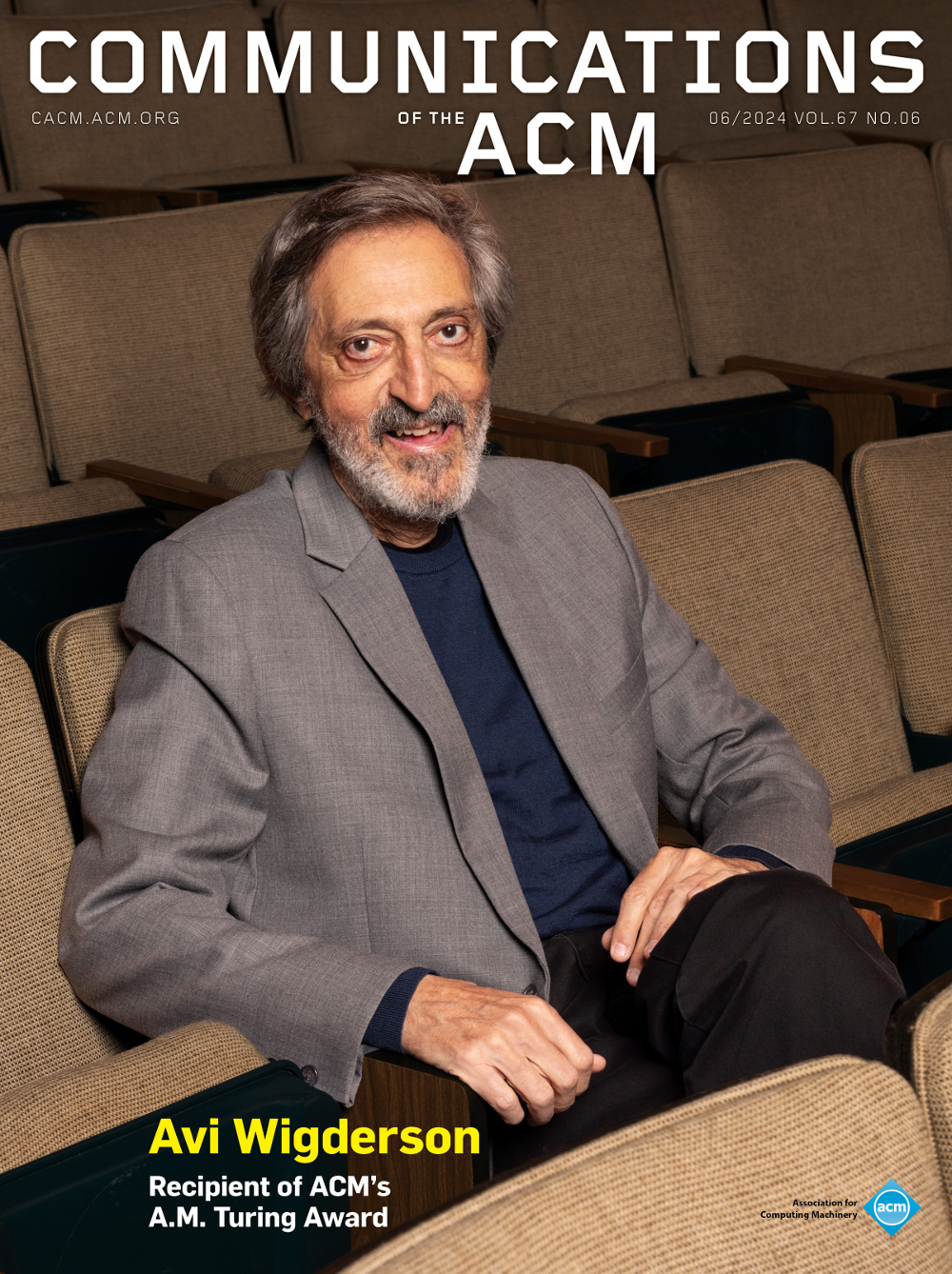July 1974 - Vol. 17 No. 7

Features
UNIX is a general-purpose, multi-user, interactive operating system for the Digital Equipment Corporation PDP-11/40 and 11/45 computers. It offers a number of features seldom found even in larger operating systems, including: (1) a hierarchical file system incorporating demountable volumes; (2) compatible file, device, and inter-process I/O; (3) the ability to initiate asynchronous processes; (4) system command language selectable on a per-user basis; and (5) over 100 subsystems including a dozen languages. This paper discusses the nature and implementation of the file system and of the user command interface.
Minimal-total-processing time drum and disk scheduling disciplines
This article investigates the application of minimal-total-processing-time (MTPT) scheduling disciplines to rotating storage units when random arrival of requests is allowed. Fixed-head drum and moving-head disk storage units are considered, and emphasis is placed on the relative merits of the MTPT scheduling discipline with respect to the shortest-latency-time-first (SLTF) scheduling discipline. The results of the simulation studies presented show that neither scheduling discipline is unconditionally superior to the other. For most fixed-head drum applications, the SLTF discipline is preferable to MTPT, but for intra-cylinder disk scheduling the MTPT discipline offers a distinct advantage over the SLTF discipline. The computational requirements of an algorithm that implements the MTPT scheduling discipline are shown to be comparable to SLTF algorithms. In both cases, the sorting procedure is the most time-consuming phase of the algorithm.
Scheduling independent tasks to reduce mean finishing time
Sequencing to minimize mean finishing time (or mean time in system) is not only desirable to the user, but it also tends to minimize at each point in time the storage required to hold incomplete tasks. In this paper a deterministic model of independent tasks is introduced and new results are derived which extend and generalize the algorithms known for minimizing mean finishing time. In addition to presenting and analyzing new algorithms it is shown that the most general mean-finishing-time problem for independent tasks is polynomial complete, and hence unlikely to admit of a non-enumerative solution.
Protection and the control of information sharing in multics
The design of mechanisms to control the sharing of information in the Multics system is described. Five design principles help provide insight into the tradeoffs among different possible designs. The key mechanisms described include access control lists, hierarchical control of access specifications, identification and authentication of users, and primary memory protection. The paper ends with a discussion of several known weaknesses in the current protection mechanism design.
Various addressing schemes making use of segment tables are examined. The inadequacies of these schemes when dealing with shared addresses are explained. These inadequacies are traced to the lack of an efficient absolute address for objects in these systems. The direct use of a capability as an address is shown to overcome these difficulties because it provides the needed absolute address. Implementation of capability-based addressing is discussed. It is predicted that the use of tags to identify capabilities will dominate. A hardware address translation scheme which never requires the modification of the representation of capabilities is suggested. The scheme uses a main memory hash table for obtaining a segment's location in main memory given its unique code. The hash table is avoided for recently accessed segments by means of a set of associative registers. A computer using capability-based addressing may be substantially superior to present systems on the basis of protection, simplicity of programming conventions, and efficient implementation.
Formal requirements for virtualizable third generation architectures
Virtual machine systems have been implemented on a limited number of third generation computer systems, e.g. CP-67 on the IBM 360/67. From previous empirical studies, it is known that certain third generation computer systems, e.g. the DEC PDP-10, cannot support a virtual machine system. In this paper, model of a third-generation-like computer system is developed. Formal techniques are used to derive precise sufficient conditions to test whether such an architecture can support virtual machines.



